(3048 products available)


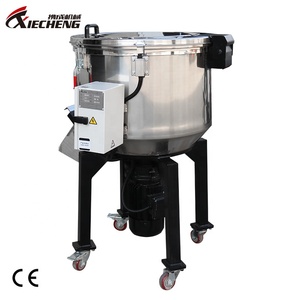











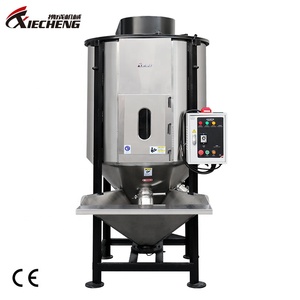
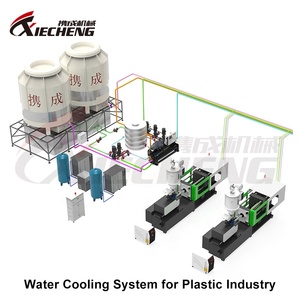


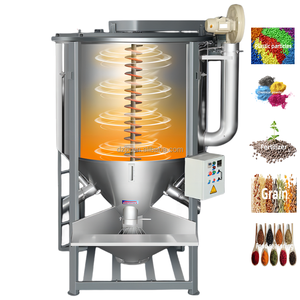
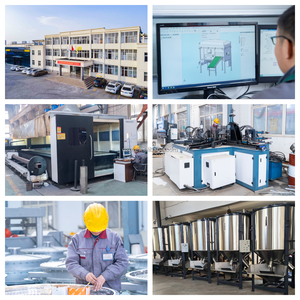

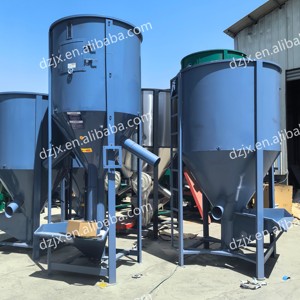

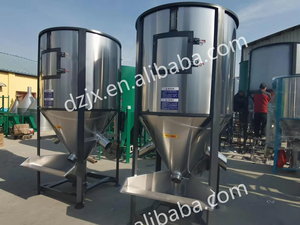











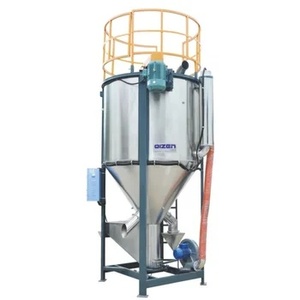



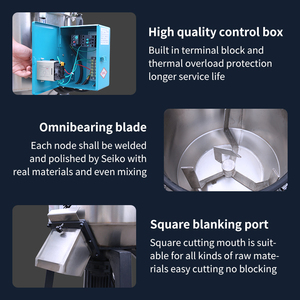








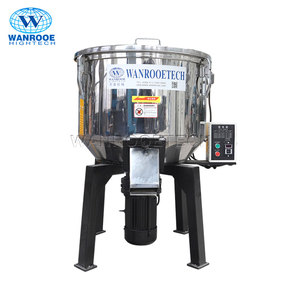




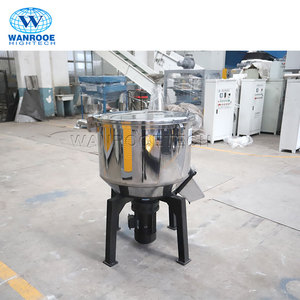








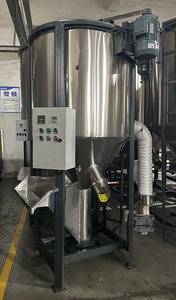


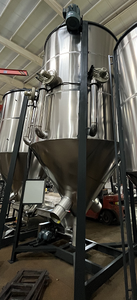
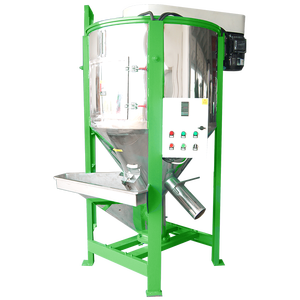
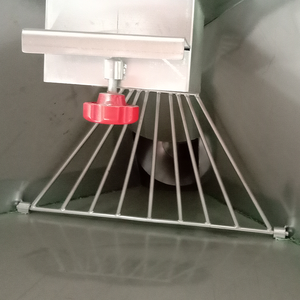
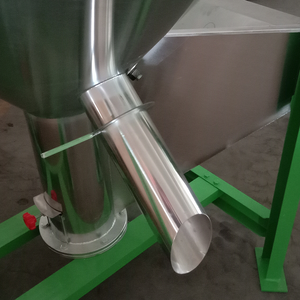

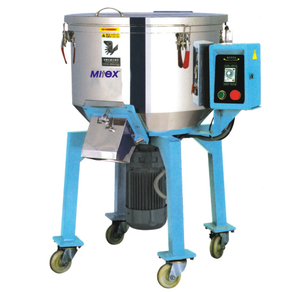











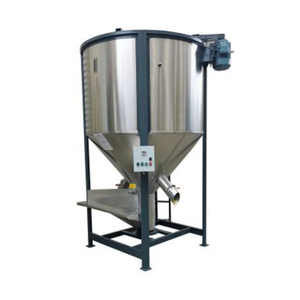


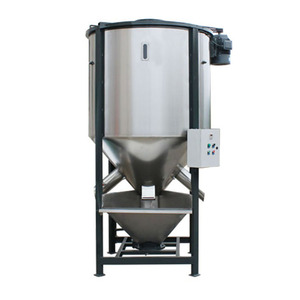
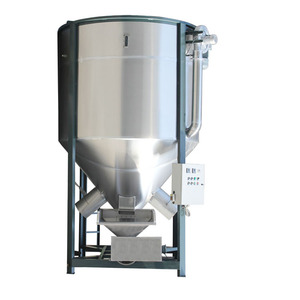






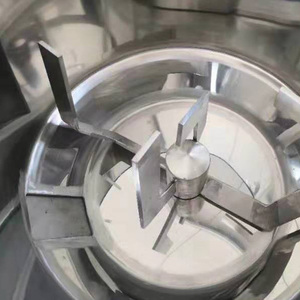






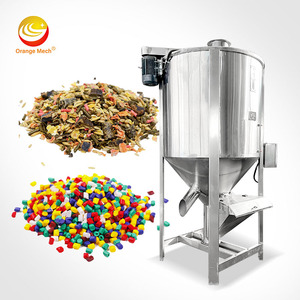
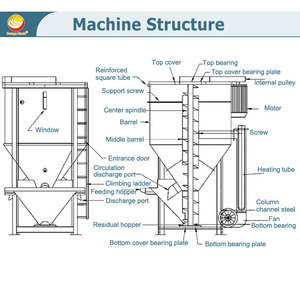

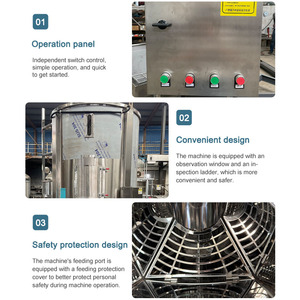










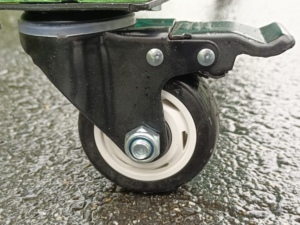



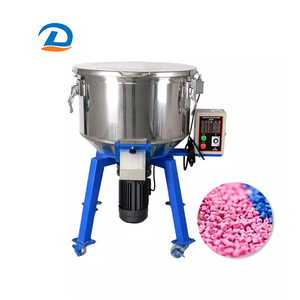





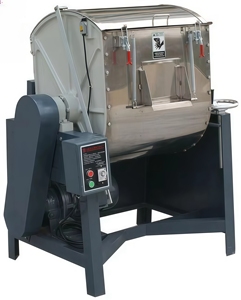

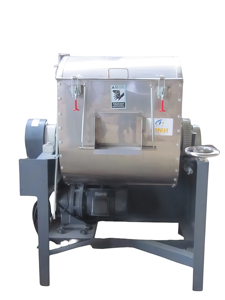
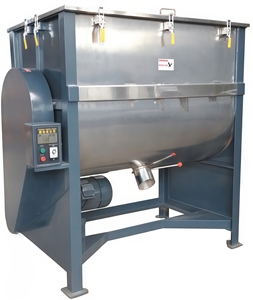
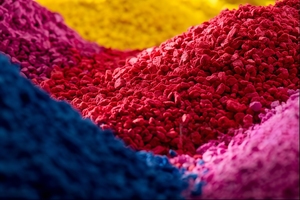


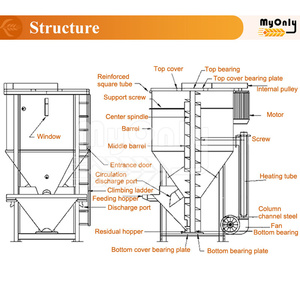
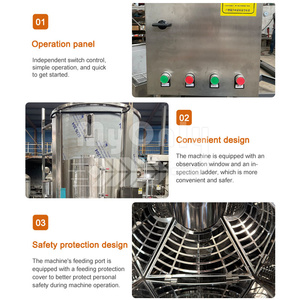





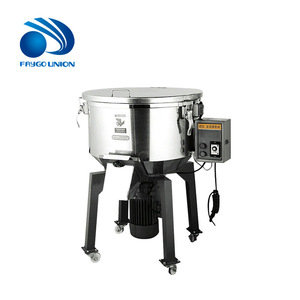




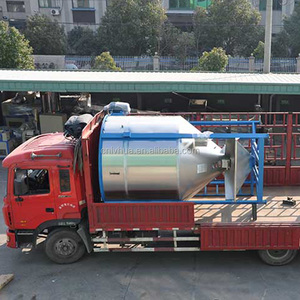
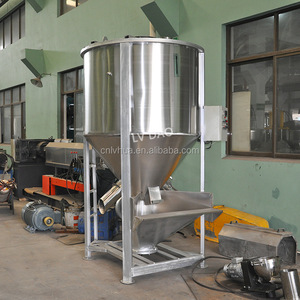
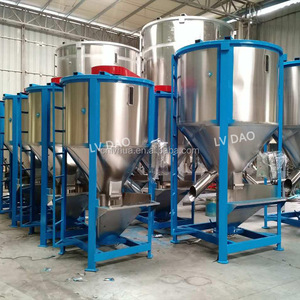




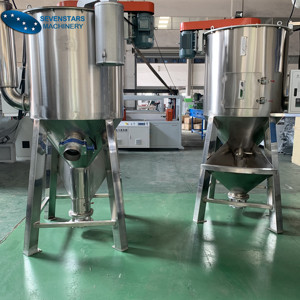


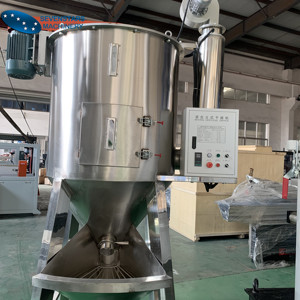
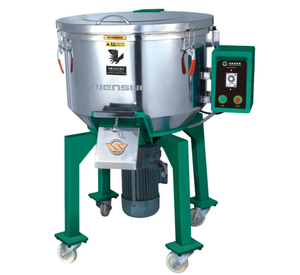






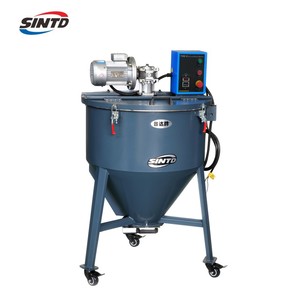









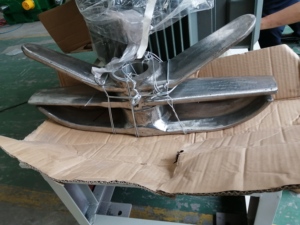
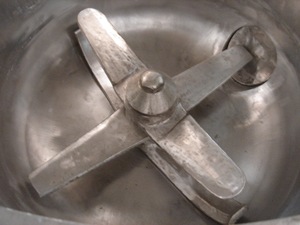






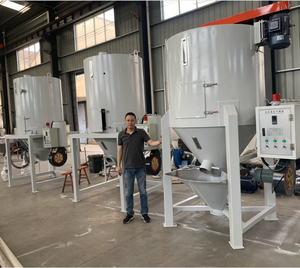




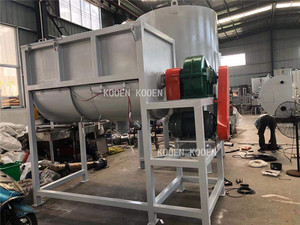









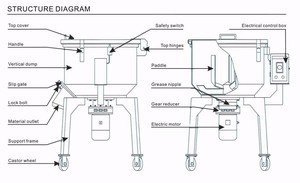








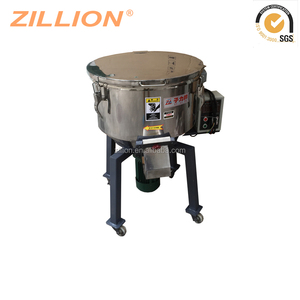


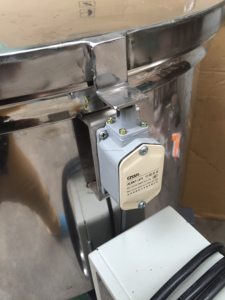
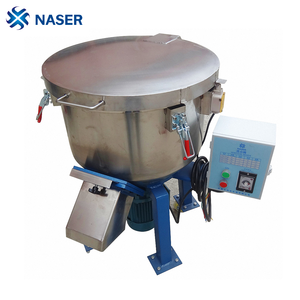


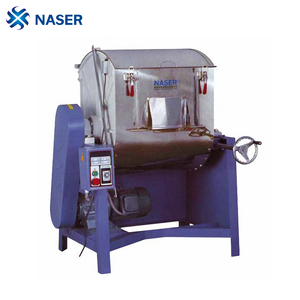


The plastic vertical granule mixer is a processing machine used for mixing different types of plastic materials. Different types of mixers are available for exclusive mixing requirements.
Specification of plastic vertical granule mixers:
Capacity:
The sizes of plastic vertical granules mixers vary, with capacities ranging from a few liters to several hundred liters to meet different production needs.
Power:
The motors of plastic vertical granules mixers have various powers, generally from kilowatts to tens of kilowatts, to ensure sufficient mixing strength and speed.
Mixing speed:
Mixing speed is one of the critical factors to mixing quality. The mixing speeds of plastic vertical granules mixers are usually adjustable to meet different materials and processes.
Material:
The cylinders of plastic vertical granules mixers are usually made of stainless steel or special coated steel to resist corrosion and abrasion.
Maintenance of plastic vertical granules mixers:
Regular cleaning:
After mixing, please clean the mixer thoroughly to avoid residue and material buildup that may affect subsequent mixing quality.
Lubrication system maintenance:
Check the condition of the mixer grease regularly and replace or replenish it as needed to ensure proper operation of the lubrication system.
Electrical system inspection:
Periodically check the electrical system components of the mixer, including cables, switches, etc., to ensure that there is no wear, looseness, and other issues, and to ensure normal electrical connection.
The application range of plastic vertical blending mixers is very wide, and they can be used for mixing all kinds of plastics. The following are some examples of how these mixers are used in different industries.
Production of Engineering Plastics
When making engineering plastics such as nylon, PBT, etc., additive mixing and uniform dispersion of additives are very important. Vertical granule mixers can ensure that different additives are evenly mixed with the base material of engineering plastics, thus improving the performance of engineering plastics. For example, the strength, toughness, heat resistance, noise reduction, and other properties of engineering plastics are modified by using different additives. In addition, the vertical granule mixer can ensure that the color masterbatch is evenly distributed in the engineering plastics, so as to improve the color and appearance quality of the products made of these engineering plastics.
Mixing of Plastic Production
Vertical granule mixers can be used to mix different types of plastic raw materials to achieve specific properties and quality requirements. For example, the mixer can evenly mix polystyrene, polypropylene, polyethylene, and other plastics to produce a new type of plastic. In addition, different recycled plastics can also be blended by a vertical mixer to produce a recycled plastic with better quality and properties.
Modification of Plastic
Some plastics need to be modified by adding additives such as anti-static agents, moisture-proof agents, fire-retardant agents, etc. Vertical granule mixers can mix these additives and modified plastics evenly, improving the specific characteristics of plastics.
Mixing of Plastics and Non-Metallic Materials
In some cases, plastics need to be mixed with non-metallic materials such as fiberglass, calcium carbonate, talcum powder, etc., so as to enhance the strength, rigidity, heat resistance, and other properties of plastics. Vertical granule mixers can mix these different materials evenly, thus providing a better quality and performance of plastics.
Specialized Plastic Production
Some specialized plastics, such as flame-retardant plastics or anti-static plastics, require vertical granule mixing to achieve uniform dispersion and blending. In addition, specialized plastics need to be produced in addition to blending, such as compounding with other materials, through the vertical granule mixer to achieve the required quality and performance.
Choosing the right vertical granule mixer for plastic is not that hard if people focus on the following factors:
Q: What is the difference between static and dynamic mixers?
A: Dynamic mixers use moving parts to mix materials. Static mixers use a fixed design to blend materials as they flow through.
Q: What are the benefits of using a plastic mixer?
A: Plastic mixers create a uniform mixture, simplify production processes, and enhance the quality of final products.
Q: What are the latest trends in plastic mixing technology?
A: Developments include eco-friendly mixers, precisely controlled mixers, and advanced automated mixing systems.
Q: What is the role of a plastic mixer in recycling?
A: Plastic mixers help to homogenize recycled materials, making them suitable for use in new products.
Q: Can buyers get custom plastic mixers?
A: Some manufacturers can offer plastic mixers that are designed to meet specific requirements in terms of size, capacity, and features.